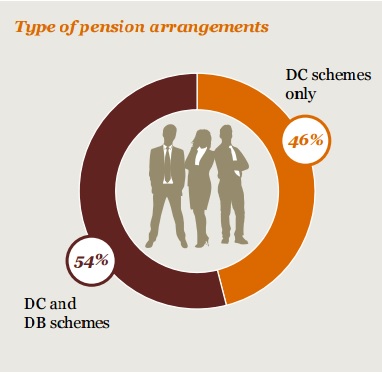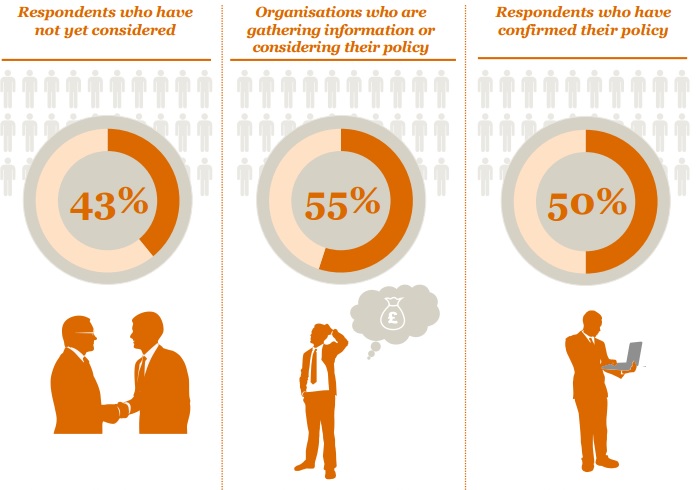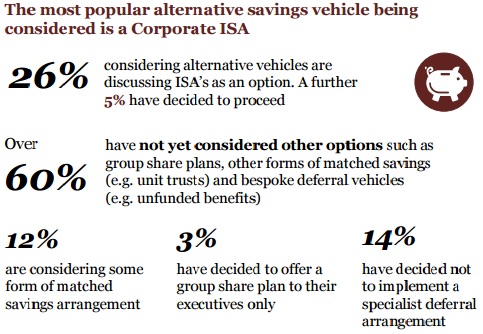Indecision and fear: tax changes threaten the role of pensions in employee benefits
From the blog: More than half of schemes are considering offering a cash allowance to members affected by pension tax changes, as alterations to the lifetime allowance threaten to drive high-earners away from workplace pensions.
Reductions to the lifetime allowance to £1m from £1.8m combined with proposed changes to the tax treatment of pensions could drive high earners to seek other forms of saving.
A survey released this week by consultancy PwC, which received 130 responses from businesses of a range of sizes, showed 51 per cent were in discussion over offering a cash allowance to members affected by tax changes.
Types of schemes surveyed
Source: PwC
A further 42 per cent are considering restricting contributions to avoid a breach of the annual allowance, with 18 per cent already having decided to do so.
Schemes yet to respond
The survey largely paints a picture of indecision and fear. Only half of schemes surveyed have considered policy options, 11 per cent have confirmed a policy and only 2 per cent have communicated their policy to members. Five per cent have not considered the impact of the summer Budget.
Perhaps more worryingly, 72 per cent of respondents were worried about the administrative complexity of the changes and 55 per cent agreed it would add cost to their payroll and pension processes.
Rise of the workplace Isa?
Despite this, the most popular alternative savings vehicle being considered is a corporate Isa. It is being discussed as an option by 26 per cent of schemes, with a further five per cent having decided to proceed.
The most popular option overall (inclusive of savings options) is excepted life insurance, with 30 per cent having decided to implement it and a further 15 per cent in discussion.
All this could mean a diminished role for pensions in employee benefits. Parts of the survey seem to bear this out, with 47 per cent of schemes introducing changes to the role of retirement savings in the wider reward policy.
However, 70 per cent still plan to provide schemes above the auto-enrolment minimums.
Most Viewed
- What does Labour have in store for the pensions industry?
- LGPS latest: GLIL backers invest £475m for UK infrastructure push
- Dashboard costs rose by 23% in 2023, figures show
- Border to Coast launches UK strategy in major private markets push
- How the pensions industry can better support people with mental health problems




